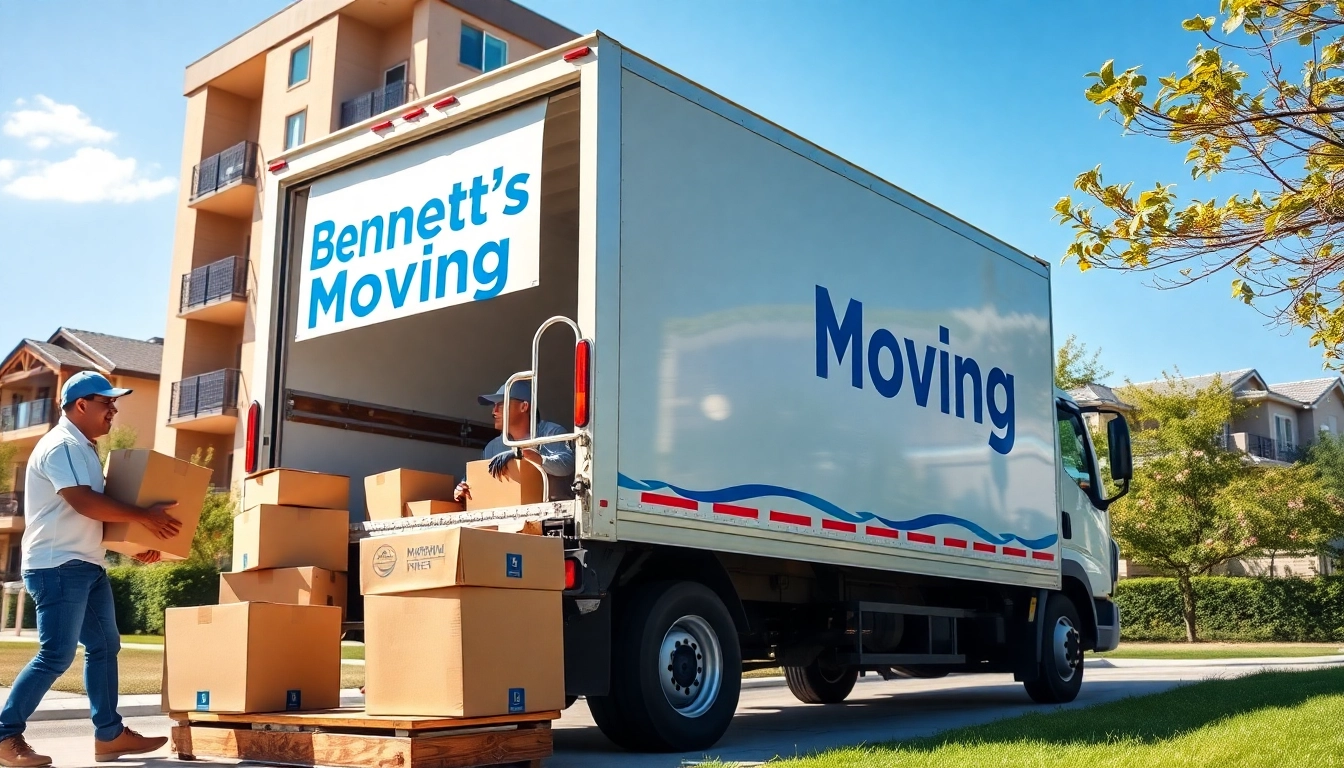Understanding the Basics of Moving Services
What Are Moving Services?
Moving services refer to the professional assistance provided to individuals or businesses when they relocate their belongings from one location to another. These services encompass a wide range of offerings, including packing, loading, transporting, unloading, and unpacking items at the new destination. Many moving companies also provide specialized services such as storage solutions, packing supplies, and even installation assistance for furniture and appliances.
Types of Moves Offered
Moving services can be classified into several categories based on the type of relocation involved. Here are some common types:
- Local Moves: These involve relocating within the same city or metropolitan area, typically within a 50-mile radius. Local moves are often charged by the hour, and the volume of items being moved can greatly affect the cost.
- Long-Distance Moves: A long-distance move usually involves traveling over 50 miles or across state lines. It requires more logistical planning, as it often includes interstate regulations and may involve different cost structures.
- International Moves: Such moves entail transporting belongings overseas and typically require assistance with customs clearance, packing specific to international standards, and arrangements for shipping containers.
- Commercial Moves: These cater to businesses relocating their operations. They can be highly complex, often requiring minimal downtime, specialized equipment, and careful handling of sensitive materials.
- Specialty Moves: This category includes moving items that require special handling, such as pianos, antiques, or artwork. It often involves more intricate planning and transportation methods.
Importance of Professional Help
Utilizing professional moving services can greatly alleviate the stress and challenges associated with a move. Experienced movers possess the expertise to handle logistics efficiently, ensuring that items are packed securely to prevent damage and are loaded safely for transportation. Additionally, hiring professionals can save time, allowing individuals to focus on other important aspects of the relocation process, such as transitioning to a new community or managing paperwork.
Planning Your Move
Steps to Prepare for a Move
Proper preparation is pivotal for a successful move. Here are essential steps to help ensure a smooth transition:
- Determine the Type of Move: Decide the nature of your move; whether it’s local, long-distance, or international, as this will help guide your planning and budgeting.
- Create a Timeline: Establish a moving timeline that includes deadlines for packing, hiring movers, and setting up utilities in your new home.
- Budgeting: Assess moving costs including transportation, packing materials, and any additional services required. Create an overall budget to keep expenses on track.
- Declutter: Sort through your belongings and decide what to keep, donate, or discard. This will lighten your load and make packing simpler.
Creating a Moving Checklist
A well-thought-out checklist can be invaluable in maintaining organization during a move. Here’s a sample checklist to guide you:
- Book a moving company or rental truck.
- Gather packing supplies such as boxes, tape, and bubble wrap.
- Label all boxes clearly with their contents and intended room in the new home.
- Confirm transfer of utilities, subscriptions, and important services to the new address.
- Notify change of address to banks, subscriptions, and other essential entities.
How to Calculate Moving Costs
Understanding moving costs involves several factors. Here are tips for calculating your expenses:
- Volume and Weight: Many companies charge based on the weight of your belongings or the volume they take up in the moving truck. Consider getting a professional estimate.
- Distance: The distance between your old and new home directly affects transportation costs. Long-distance moves may also involve additional fees.
- Services Required: Additional services such as packing, storage, or moving specialty items may incur extra charges. Ensure to clarify all potential costs with your moving company.
- Travel Fees: Consider any travel fees that might be applicable if your move requires more than a standard truck rental.
Choosing the Right Moving Company
Factors to Consider When Selecting
Choosing the right moving company is crucial to a successful moving experience. Here are key factors to consider:
- Reputation: Research moving companies in your area and read online reviews. A company with a solid reputation tends to offer reliable services.
- Services Offered: Make sure the company provides all necessary services tailored to your specific moving needs.
- Insurance and Licensing: Verify that the movers are licensed and insured to protect your belongings during transit.
- Cost Estimates: Get written estimates from multiple companies to compare costs and services.
Comparative Analysis of Services
When comparing moving companies, consider their service offerings, cost-effectiveness, and customer service. Take the time to ask questions regarding:
- How detailed their moving estimate is.
- What packing materials they use and if they offer packing services.
- How they handle fragile items or specialty moves.
- Policies regarding cancellations or changes in plans.
Reading Reviews and Testimonials
Online reviews and customer testimonials provide insights into the reliability and quality of moving companies. Look for reviews that discuss:
- Quality of service received.
- Timeliness and professionalism of the moving team.
- Handling of claims or disputes.
Websites like industry-specific forums, review platforms, and social media can provide valuable customer feedback.
Executing a Smooth Move
Best Practices for Packing
Effective packing is fundamental to protecting your belongings during a move. Here are best practices:
- Use Quality Materials: Invest in sturdy boxes, wrapping materials, and packing tape. Cheap materials may lead to damaged items.
- Pack Room by Room: This helps keep your belongings organized. Clearly label each box with its contents and the room it belongs to.
- Fill Empty Spaces: Use packing peanuts, old towels, or crumpled paper to fill gaps in boxes and prevent items from shifting during transport.
- Protect Fragile Items: Wrap fragile items in bubble wrap or cloths and highlight these boxes for special handling during the move.
How to Label Your Boxes Efficiently
Labeling boxes effectively can save a lot of time when unpacking. Consider these tips:
- Use a bold, permanent marker to label boxes.
- Write a summary of contents and destination room on the label.
- Consider color-coding labels for each room to make unloading and sorting easier.
- Label the sides of boxes as well as the top for easy identification, especially when boxes are stacked.
Ensuring a Timely Move
To ensure a timely moving experience, it’s crucial to plan ahead and communicate effectively with your moving company:
- Confirm the date and time of your move in advance.
- Stay organized with your moving checklist to avoid last-minute hiccups.
- Prepare an essentials bag with items you’ll need immediately upon arrival at your new home, such as toiletries and important documents.
Post-Move Considerations
Unpacking and Organization Tips
Once you arrive at your new home, unpacking can seem daunting. Use these tips to streamline the process:
- Unpack the essential items first, like kitchenware and toiletries.
- As you unpack, organize items based on their designated room to help reduce clutter.
- Allow yourself time to settle in; don’t feel pressured to complete everything on the first day.
Settling into Your New Home
Transitioning to a new home involves more than just unpacking. Consider these steps to help you and your family adjust:
- Familiarize yourself with the neighborhood, local services, and amenities.
- Meet neighbors and engage with local community activities to build your network.
- Update address information with important contacts and service providers to ensure smooth communication.
Feedback and Testimonials Collection
Gathering feedback and testimonials post-move can provide valuable insights into your moving experience. Consider the following approaches:
- Solicit feedback from family members to gauge their moving experience.
- Consider reaching out to your moving company for a follow-up to improve future services.
- Share your experience online to help others make informed decisions.
Planning and executing a move can be a complex endeavor, but with careful preparation, the right services, and a bit of organization, it can be a smooth transition. Whether you’re moving across town or across the country, utilizing resources like https://bennettsmoving.com/ can significantly enhance your moving experience.



